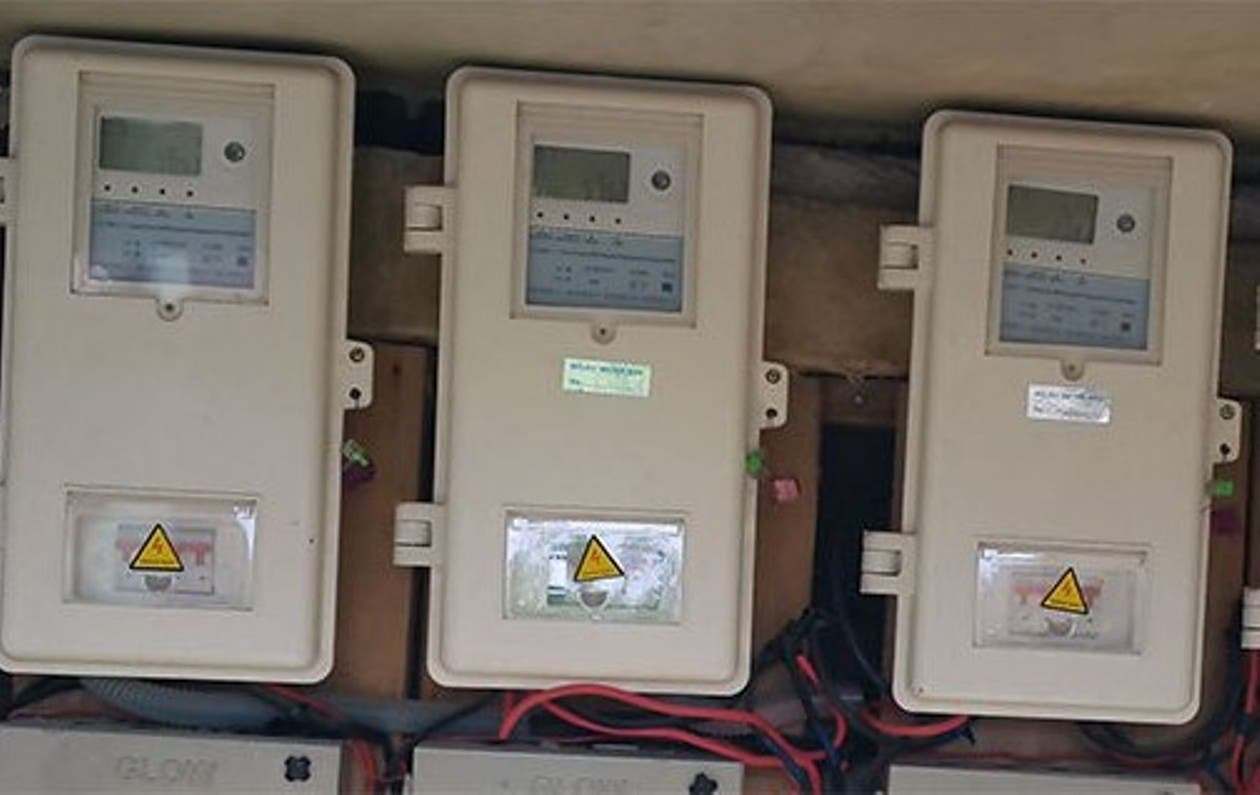Seven years of METERING MESS: DISCOs frustrate Nigerians despite project gulping N344 billion

THE Federal Government recently said it will spend about N269.38billion on the provision of six million free meters for electricity users across the country.
It explained that it had commenced a free meter distribution scheme after which Distribution Companies of Nigeria, DISCOs, flagged-off the program.
To ensure speedy metering of electricity customers in line with the target of closing the gap in the Nigeria Electricity Supply Industry by December 31, 2021, the regulators said they had continued the monitoring of DISCOs.
They said the monitoring was to ensure that DISCOs complied with the provisions of the Meter Asset Provider, MAP, Regulations to fast-track meter roll out.
However, metering debacle has not only come as a shock to Nigerians, but, to many, it is also a ploy to frustrate the eradication of estimated bills perceived to account for much of the revenues accruing to DISCOs.
Critics say the situation where seven years after the sector was privatized, electricity consumers asking for meters are denied, despite supposedly agreed upon schemes by government and DISCOs, is unacceptable.
Interestingly, one of the Key Performance Indicators (KPIs) embedded in the Performance Agreement (PA) for the DISCOs when they took over were to progressively bridge the metering gap.
However, the obligation of DISCOs to provide a specified number of meters under the terms of the PA executed between the respective core investors and the Federal Government of Nigeria (FGN) remains and DISCOs are expected to comply.
PAs have five-year lifespan at the end of which a high rate of efficiency is expected to have been achieved with the metering gap significantly closed.
READ ALSO:FG begins nationwide distribution of 1m free meters in Kano, Kaduna, Lagos
The PAs commenced on January 1, 2015 for most DISCOs and was due for review in December 2019 with the exception of the Kaduna DISCO.
The DISCOs had also agreed to deliver 1.7 million pre-paid meters to consumers, improve customer service delivery, extend the distribution network, and reduce power interruptions while delivering stable power to consumers.
According to the PA, signed with the Bureau of Public Enterprises (BPE), DISCOs assured of metering electricity consumers and significantly reducing the collection and technical losses in the sector within five years.
As of 2018, however, the percentage of compliance ranged from 38 percent to 79 percent.
Obviously, the terms of agreement and trade with supposed business institutions which was believed to be proactive in getting the sector to what Nigerians envisaged may have become a mirage or better still a ‘ploy in disguise’.
N344bn injected into messy metering — Investigation
One of the challenges facing the sector appears to be the mismatch between projections and actual performance.
For instance, while experts projected $900million (about N324 billion) as amount required to fund the provision of pre-paid electricity meter in Nigeria, Vanguard investigation revealed that over N344 billion has been released to metering scheme (this excludes agencies’ bailout fund to the power sector).
MAP Programs Executive of Mojec, Michael Onurah, stated that the electricity meter companies were working to close the metering gap in the country, adding, however, that “the process requires huge amount of money to the tune of between $600 million and $900 million.”
He went on: “With the metering gap of 4.7 million, multiplied by the average price of a meter both a single and three phase (N36, 991.50 and N67, 055.85), we arrived at the figure given.
“However, the metering gap is something that does increase and not static which was also considered when arriving at the $900 million.”
Apparently, from 2013 (when the sector was privatized) to now, despite N39 billion in 2017, N36 billion in 2019, coupled with DISCOs efforts as well, out of a total number of at least 5.8 million unmetered and faulty/obsolete metered customers (NERC’s figure), DISCOs have not been able to install more than 700,000 meters across the country.
The Federal Government, in November, said it was injecting about N269.38 billion on six million meters to supply the facility to Nigerians.
To this end, it has spent over N344 billion on bridging the metering gap in the country, but has not made any headway.
Nigerians speak
Naturally, Nigerians have continued to voice their condemnation of the estimated billing system, arguing that it is laced with fraud and benefiting DISCOs who appear to be in a hurry to recoup their investment.
Some consumers have complained that the recent exorbitant bills are not commensurate with the frequency of power supplied.
A resident of Olodi/Apapa area, Sodiq Rammon, who spoke to Sunday Vanguard, said his electricity bill rose from N13, 000 in December 2019 to N18, 000 in January, N22, 000 in March, and N32, 000 in April.
He said: “In April 2020, I was given an estimated bill of N32, 000. That was when there was a lockdown. We cried and wailed, the following month (May), they brought N35, 000 and yet more cries and wailing.
“The bill for June consumption rose to N48, 000. This is what these DISCOs are doing to us. Is it not better they disconnect our light permanently? I thought they said tariff increase has been put on hold?
“I have never believed in the tariff, because whether there is tariff increase or not, as long as you are on estimated billing without prepaid meter, they would bring to you outrageous bills monthly when there’s absolutely no commensurate supply.”
Also, a resident of Magodo, who gave her name simply as Florence, decried the treatment of residents by DISCOs.
According to her, residents contributed money to purchase poles, cables and meters, and also replaced transformer but the distribution company would later claim ownership.
She added, “Then the electricity distribution companies will, without taking the meter reading, send outrageous estimated bills to you for power never consumed.
“And if you dare raise a question against this action, they will come and remove the cable you bought with your money as their property.”
Another respondent, who chose to be called Nwanne, who resides at Ijesha area of Lagos, noted that the voltage power line transferring power from a distribution substation to the distribution transformers (in his area) is weak and needs urgent attention.
According to him, the feeder, which is located at Cele Bus stop, oftentimes develops faults, thereby halting power supply for days.
“In a month, it could be faulty four times; and most times, it takes five days to fix it. We suspect that the feeder is overloaded and the reason is not farfetched”, he added.
“Lately, the area is witnessing urban renewal and this has caused an upsurge in population. “Many of the bungalows in the axis were sold, and the new owners are building duplexes and storey buildings.
“Meanwhile, in some of the bungalows, the owners don’t even have televisions and they consume minimal electricity, but with the new occupants of the duplexes and storey buildings, there is a lot of electricity consumption. So, the feeder is overloaded and weak.”
Also, Kehinde Soaga, resident at Ijaniki, Lagos, lamented that his house, a three-bedroom bungalow, is perpetually billed on estimation.
Problem
Unfortunately, several metering programs had been flagged off in the past, such as the Credited Advance Programme for Metering Implementation, CAPMI; Meter Service Provider, MSP, and now MAP, among others, but they all had failed to meet their objective, thus leaving Nigerians to continue suffering the brunt of DISCOs bill estimations.
According to the NERC’s First Quarter 2020 Report on the industry performance, the regulatory commission said 59.6 per cent of electricity consumers in the country were on estimated billing as of March 2020.
It said the huge metering gap for end-use customers remained a key challenge in the industry.
It said: “The records of the commission indicate that, of the 10,477,856 registered electricity customers as of the end of the first quarter of 2020, only 4,231,940 (40.39 per cent) have been metered.
“Thus, 59.61 per cent of the registered electricity customers are still on estimated billing which has contributed to customer apathy towards payment of electricity bills.”
It said in comparison to the fourth quarter of 2019, the number of registered and metered customers increased by one per cent and eight per cent respectively.
According to NERC, the metering status of the DISCOs as of March 2020 is: Benin DISCO, 54.23 per cent; Abuja, 52.73 per cent; Eko, 50.71 per cent; Ikeja, 45.47 per cent; and Enugu, 44.85 per cent.
Others are: Port Harcourt, 38.52 per cent; Ibadan, 37.11 per cent; Jos, 31.80 per cent; Kaduna, 23.60 per cent; Kano, 21.11 per cent; and Yola, 20.44 per cent.
NERC had blamed DISCOs for outright sabotage in pursuing the metering of Nigerians across the country.
It earlier reprimanded DISCOs over their lukewarm attitude to providing meters to customers.
The agency also explained that DISCOs are low in their disclosure and transparency, calling for full cooperation with auditors to agree on bankable securitization arrangement, proper planning and clear meter deployment strategy and greater transparency.
Experts speak
Experts are of the view that until government and the sector’s regulators become proactive, the end to the ‘shenanigan’ in the power sector may be far from over despite the launch of schemes to tackle metering gap.
According to Olaoye Olalere of S.P.A. Ajibade & Co., to generate revenue, DISCOs must quantify the electricity usage of the consumer and metering the consumer is the only fair way to measure electricity usage.
Also speaking to Sunday Vanguard, Professor Wumi Iledare, Ghana National Petroleum Corporation, GNPC, Professor & Chair in Petroleum Economics & Management, Institute for Oil and Gas Studies, Cape Coast, Ghana, stated, “Government is just too keen in providing ad hoc solutions to perpetual problems.
“I have said it over and over again. Let me say it one more time, the Ministry of Power must stay away from commercial and regulatory decisions. But they cannot and they are not being nagged to be accountable.
“Leave tariff and regulatory framework to an independent NERC. Let DISCOs invest in metering and invoke penalty for failure. This is the way to take us out of darkness.
“That the Minister is rejoicing for a generating capacity of 13GW and delivering less than 50 per cent for evacuation is part of the problem. “And of that 6500MW, only 60 percent can be distributed to 200 million people. It is indeed an unimpressive performance after seven years of privatization.”
Way out
It is strongly believed that the DISCOs particularly, as the retailer of electricity, need to come to terms with the fact that an average consumer across most of the social strata is willing and able to pay for accurately-measured electricity consumed.
The regulators have a statutory responsibility to ensure that the consumer only pays for electricity consumed. The NESI will require robust and reliable data to attain the level of investment required and stability of the market for proper business projections.
The Multiyear Tariffs System (MYTO) is a tariff system that thrives and survives only on robust and reliable data. The consumers particularly small business owners and those in urban residential areas spend much more than the tariff can be increased to and are willing to pay even double the current tariff if only they can be assured of at least consistent 10 hours day time or night time supply as the case may be. The financiers and investors can only take investment decision when they can see returns on the resources already invested.
Installing smart meters for the accurate measurement of usage of electricity will have a salutary effect on the NESI. Estimated billing, no matter how much the DISCOs try, cannot be a 21st century system of billing.
The model that works is the prepaid tariff collection method where the consumer pays for electricity before usage, as is obtainable in the telecommunication sector. It is heartening the regulator understands and is constantly driving the system in that direction.
It would also be great to amend the statutory provisions and provide robust methods of dealing with electricity thefts. This writer endorses the ongoing discussions with the current owners of the DISCOs and the government towards a review of the structure of ownership of the DISCOs to bring in investors with financial and technical capacity to revive the privatization efforts.
Until these issues are addressed, Nigerians may have to face the reality of never getting a transparent billing system and consistently paying for darkness without recur or apology.
Vanguard






